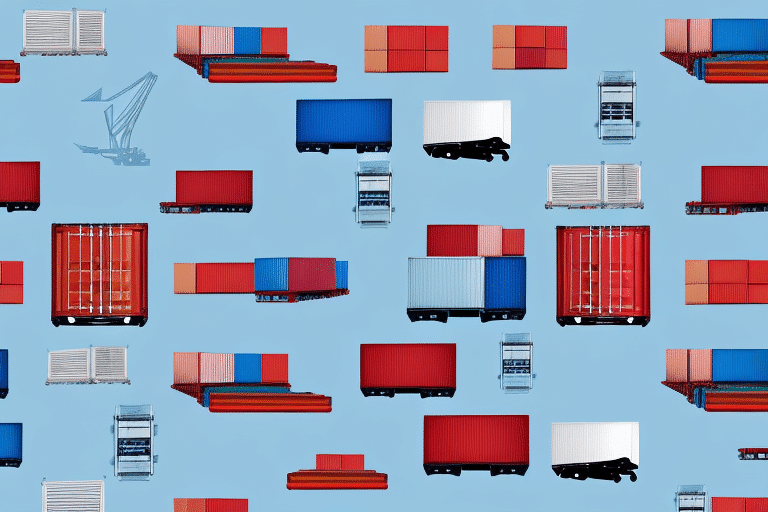Introduction to Third-Party Logistics (3PL)
Outsourcing logistics to a third-party logistics provider (3PL) has become a strategic move for companies aiming to enhance their supply chain efficiency. According to a Statista report, the global 3PL market was valued at approximately $1.6 trillion in 2023 and is projected to grow steadily. 3PL providers offer a range of services including transportation, warehousing, inventory management, and distribution, allowing companies to focus on their core business activities.
Cost Savings with 3PL Services
One of the primary advantages of partnering with a 3PL provider is significant cost savings. By leveraging the provider's expertise and economies of scale, companies can reduce expenses associated with transportation, warehousing, and labor. A Forbes article highlights that businesses can save up to 20% on logistics costs by utilizing 3PL services.
- Transportation Costs: 3PL providers negotiate better rates with carriers due to their large volume of shipments.
- Warehouse Expenses: Outsourcing warehousing eliminates the need for investing in storage facilities and maintenance.
- Labor Savings: Reducing the need for in-house logistics staff lowers payroll and training costs.
Additionally, 3PL providers implement advanced technologies such as Transportation Management Systems (TMS) and Warehouse Management Systems (WMS) to optimize operations, further driving cost efficiencies.
Enhancing Efficiency and Scalability
Efficiency is a critical factor in supply chain management, and 3PL providers excel in streamlining logistics processes. By utilizing their expertise and advanced technology, 3PLs can manage complex supply chains with greater precision and speed.
Scalability
As businesses grow, their logistics needs become more complex. 3PL providers offer scalable solutions that can easily adapt to increasing demand. Whether it's seasonal spikes or long-term growth, 3PLs ensure that logistics operations expand seamlessly to meet the company's requirements.
Advanced Technology Integration
3PLs invest in state-of-the-art technologies such as inventory management systems and Internet of Things (IoT) devices to enhance supply chain visibility and accuracy. These tools enable real-time tracking, automated inventory control, and predictive analytics, which collectively improve operational efficiency.
Improving Customer Service through 3PL
Customer satisfaction is paramount, and 3PL providers play a vital role in enhancing it by ensuring timely and accurate deliveries. Reliable logistics operations lead to better customer experiences, fostering loyalty and repeat business.
Reliable Delivery
3PL providers utilize optimized routing and robust carrier networks to ensure on-time deliveries. According to a McKinsey report, companies that partner with 3PLs experience a 15% improvement in delivery performance.
Customized Solutions
3PLs offer tailored services such as specialized packaging, kitting, and customized shipping options. These services cater to specific industry needs, enhancing the overall customer experience.
Inventory Management
Efficient inventory management ensures products are always in stock and ready to ship. 3PL providers implement sophisticated inventory tracking systems that minimize stockouts and overstock situations, leading to higher customer satisfaction.
Selecting the Right 3PL Partner
Choosing the appropriate 3PL provider is crucial for the success of your logistics strategy. Here are key factors to consider:
- Expertise and Experience: Evaluate the provider’s experience in your industry and their ability to handle your specific logistics needs.
- Technology Capabilities: Ensure the 3PL uses advanced technologies that integrate seamlessly with your systems.
- Scalability: The provider should be able to scale services in line with your business growth.
- Reputation and Reliability: Check reviews, case studies, and references to gauge the provider’s reliability and customer satisfaction levels.
- Geographic Coverage: Confirm that the 3PL has a strong presence in the regions where you operate or plan to expand.
Additionally, establish clear communication channels and service level agreements (SLAs) to ensure that both parties are aligned in their goals and expectations.
The Role of Technology in 3PL
Technology is a cornerstone of effective 3PL services. Advanced systems and tools enable 3PL providers to deliver efficient and transparent logistics solutions.
Transportation Management Systems (TMS)
TMS software optimizes routing, manages carrier relationships, and provides real-time tracking of shipments. This leads to reduced transit times and lower transportation costs.
Warehouse Management Systems (WMS)
WMS automates warehouse operations, including inventory tracking, order fulfillment, and space optimization. This results in higher accuracy and faster processing times.
Data Analytics
Data analytics tools help 3PL providers analyze supply chain performance, identify bottlenecks, and implement continuous improvements. Leveraging big data allows for predictive forecasting and proactive decision-making.
According to a Supply Chain Digital article, the integration of AI and machine learning in 3PL operations is expected to drive significant advancements in the industry.
Future Trends in 3PL
The 3PL industry is continually evolving, adapting to new technologies and changing market demands. Here are some key trends shaping the future of 3PL:
- Automation and Robotics: Automated warehouses and the use of robotics for order picking and packing are becoming more prevalent, increasing efficiency and reducing errors.
- Green Logistics: Sustainability is a growing priority, with 3PL providers adopting eco-friendly practices such as electric vehicles and optimized routing to reduce carbon footprints.
- Blockchain Technology: Blockchain offers enhanced transparency and security in supply chain transactions, improving trust and traceability.
- Omnichannel Logistics: As e-commerce continues to grow, 3PL providers are enhancing their capabilities to support omnichannel retail strategies, ensuring seamless integration between online and offline sales channels.
- Advanced Analytics: Predictive analytics and real-time data processing are enabling 3PLs to offer more proactive and customized logistics solutions.
Staying abreast of these trends is essential for companies looking to leverage 3PL services effectively and maintain a competitive edge in the market.
Conclusion
Partnering with a third-party logistics provider offers numerous benefits, including cost savings, enhanced efficiency, and improved customer service. By selecting the right 3PL partner and leveraging advanced technologies, companies can optimize their supply chains and focus on their core competencies. As the 3PL industry continues to evolve with emerging trends, businesses that embrace these partnerships are well-positioned to achieve sustained growth and competitive advantage.




















